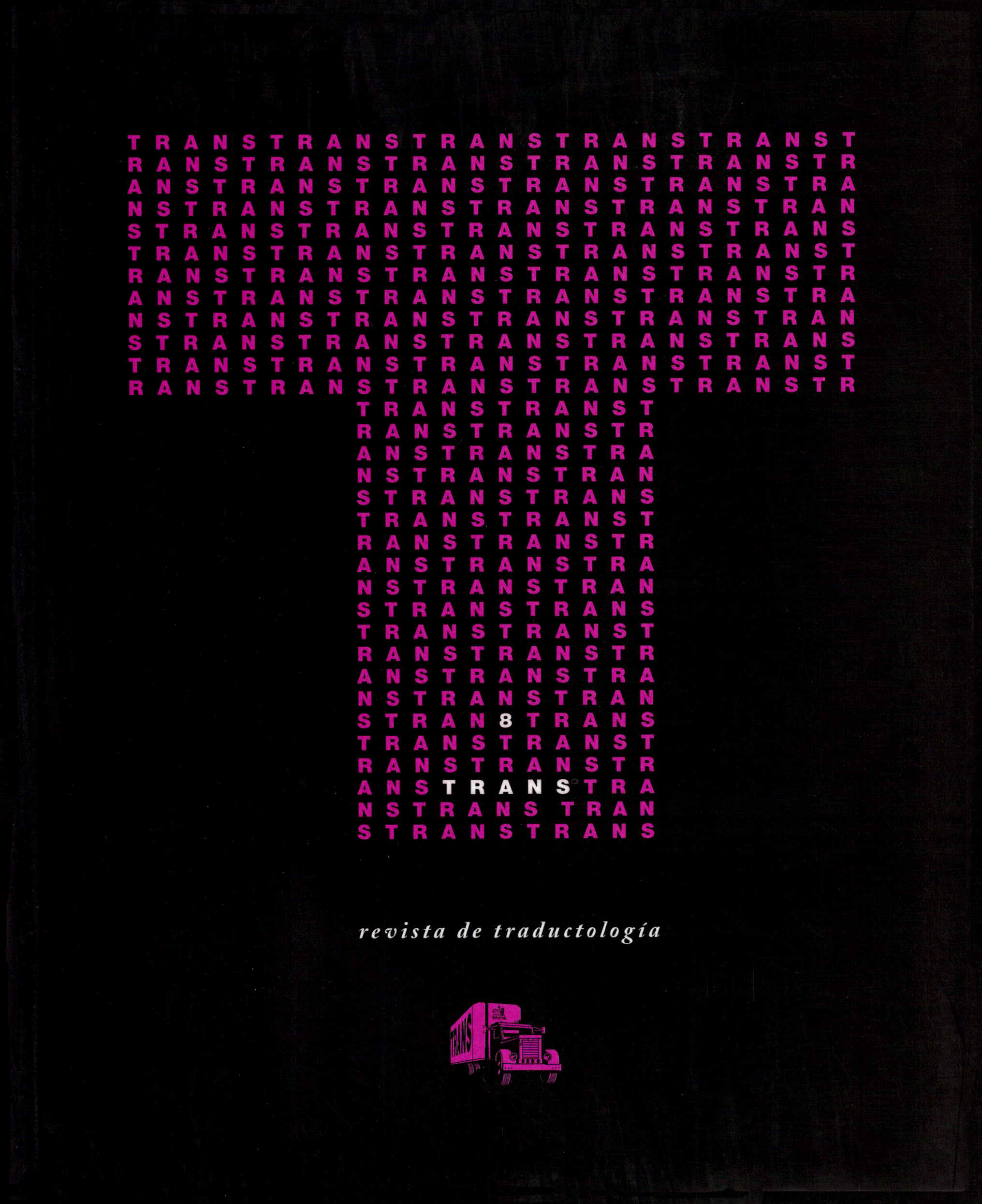Las tribulaciones de la Carmañola (y de la Marsellesa) en América Latina
DOI:
https://doi.org/10.24310/TRANS.2004.v0i8.2961Resumen
Canciones revolucionarias como la Marsellesa y la Carmañola fueron exportadas a Hispanoamérica a finales del siglo XVIII, época de plena efervescencia emancipadora que culminaría con la independencia. Así como otros numerosos textos, estas canciones fueron traducidas, transformadas o adaptadas con el objetivo de reforzar la militancia de los actores de la emancipación. El siguiente trabajo tiene como objetivo dar cuenta del destino de estas dos canciones revolucionarias francesas en Venezuela (y de manera general en Hispanoamérica). Particularmente apunta a poner de manifiesto la naturaleza y extensión de las transformaciones sufridas por los textos en la traducción española así como las estrategias utilizadas por los traductores. Utilizamos un método discursivo y comparativo para mostrar la influencia de estas traducciones en el proceso histórico de la Emancipación de Hispanoamérica. De hecho, es fácil creer que tales ideas importadas hayan sido solamente copiadas y adoptadas. Si pudieron ser asimiladas es porque fueron adaptadas.
Descargas
Métricas
Publicación Facts
Perfil de revisores N/D
Información adicional autores
Indexado: {$indexList}
-
Indexado en
- Sociedad Académica/Grupo
- N/D
- Editora:
- Universidad de Málaga
Publicado
Cómo citar
Número
Sección
Licencia
Todos los contenidos publicados en TRANS. Revista de Traductología están sujetos a la licencia Creative Commons Reconocimento-NoComercia-Compartirigual 4.0 cuyo texto completo puede consultar en <http://creativecommons.org/licenses/by-nc-sa/4.0>
Se pueden copiar, usar, difundir, transmitir y exponer públicamente, siempre que:
- Se cite la autoría y la fuente original de su publicación (revista, editorial y URL de la obra).
- No se usen para fines comerciales.
- Se mencione la existencia y especificaciones de esta licencia de uso.
- Compartir Igual — Si remezcla, transforma o construye sobre el material, debe distribuir sus contribuciones bajo la misma licencia que el original.
Los derechos de autor son de dos clases: morales y patrimoniales. Los derechos morales son prerrogativas perpetuas, irrenunciables, intransferibles, inalienables, inembargables e imprescriptibles. De acuerdo con la legislación de derechos de autor, TRANS. Revista de Traductología reconoce y respeta el derecho moral de los autores/as, así como la titularidad del derecho patrimonial, el cual será cedido a la Universidad de Málaga para su difusión en acceso abierto. Los derechos patrimoniales, se refieren a los beneficios que se obtienen por el uso o divulgación de las obras. TRANS. Revista de Traductología se publica en open access y queda autorizada en exclusiva para realizar u autorizar por cualquier medio el uso, distribución, divulgación, reproducción, adaptación, traducción o transformación de la obra.
Es responsabilidad de los autores/as obtener los permisos necesarios de las imágenes que están sujetas a derechos de autor.
Los autores/as cuyas contribuciones sean aceptadas para su publicación en esta revista conservarán el derecho no exclusivo de utilizar sus
contribuciones con fines académicos, de investigación y educativos, incluyendo el auto-archivo o depósito en repositorios de acceso abierto de cualquier tipo.













21.png)
